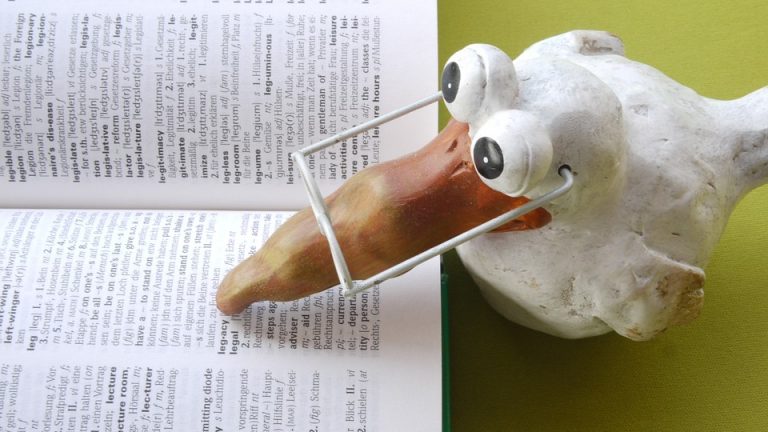Sometimes more general study tips don’t apply to learning a new language. Sure you can memorise words, but that doesn’t always translate to being to able to fluently converse and read in the language. Here’s some #studyblog advice on the best ways to effectively learn a language…
As a modern languages student, it feels like I’ve dedicated my life to answering this age-old question. The truth is, there is no one set way that works for everyone since we all learn in different ways. I’ve tested all these methods out and these are the ones I think are most effective, have a go and find out which method works best for you!
Cut out English completely
Say au revoir to English from day one of your language learning process. This means instructions, vocab lists, questions and answers all have to be in your target language. While at first it might seem difficult, this gets your brain used to thinking in another language and teaches you to recall words and phrases naturally as opposed to having to translate via English first helping you build fluency. Instead of words in your vocab lists try using pictures instead. When you’re speaking, and stuck for a specific word – try and explain the word instead, using simpler words you already know rather than saying it in English. For example, if you haven’t learnt the word for pillow try saying what you put your head on when you sleep. Sure, you might sound a bit silly, but you’re more likely to remember the word for next time.
Throw yourself in at the deep end

It isn’t exactly a secret that the best way to learn a language is to spend time immersed in the target language. Ideally, go and spend a few weeks in a country where the language is spoken. If you can’t afford a holiday or want to do something more productive with your spare time, think about au pairing or check out WorkAway as these allow you to meet and interact with locals while also giving you a taste of the local culture, with the added benefit of possibly earning a bit of money at the same time. If time and money mean that it isn’t possible to jet off, this doesn’t mean you’re at a disadvantage. Luckily for us, Warwick is an incredibly diverse university and you are almost guaranteed to find someone who is native in your target language on campus. Head to the Terrace Bar and join in World@Warwick’s Language Café.
Read to build vocabulary

Reading a book in the target language is a great way to boost your vocabulary and make you feel more comfortable using and recognising grammatical structures. However, a common mistake people make is that they often start off with the classics, which can be too complex and can knock your confidence when they become too challenging. If you have just started a beginners Spanish course, reading Don Quixote in full would be incredibly difficult, and would not help you learn that much, due to the structures and words being way beyond your level. Start off with children’s or young adult books, where the language and style is often simplified for a lower level. If you have a favourite book that you’ve read several times in English and are already confident with, maybe look for a translation in your target language, for example the Harry Potter books have been translated into lots of languages. This means that you can focus on vocabulary as opposed to having to worry about following the plot.
However, the biggest defining factor for learning a language effectively and successfully or not, is confidence. The more confidence you have to speak out and make mistakes, the more you will learn. Use the feedback you get, and if you are constantly being corrected or forgetting a certain word, add it to your vocab list. Don’t be afraid to speak to people – they won’t laugh at you! Most likely they will be impressed and happy to see someone learning their language.
Have a go using these tips and remember that learning a language is a gradual process and these things take time. Practise makes perfect!
